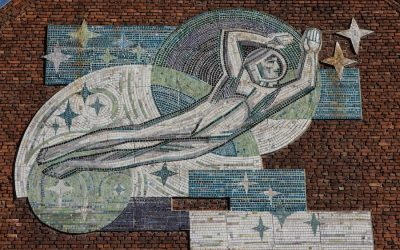Scale, mechanisms, and countermeasures to combat the issue
Andrey Rostovtsev
Photo: The same people act as scientific supervisors and official opponents in dozens, and sometimes hundreds, of fictitious dissertation defenses. Photo by Debasish Lenka on Unsplash
In recent decades, the scientific community in Russia and a number of post-Soviet countries has faced a systemic erosion of academic integrity. The spread of plagiarism, falsification, and fictitious co-authorship, along with the growth of the dissertation market, have become pervasive issues affecting both universities and research institutions, as well as management structures.
These issues have grown more acute since the collapse of the USSR, which led to the disappearance of the previous repressive control mechanisms but did not inaugurate the formation of new ethical norms.
Post-Soviet Fraud
Scientific fraud in the post-Soviet system is largely influenced by the legacy of the Soviet education model, which was centralized and formalized. In the absence of independent expert communities and democratic procedures, scientific institutes started to be seen as bureaucratic career ladders. Plagiarism and falsification of experimental results in dissertations and scientific publications became not a rare exception, but a routine practice.
We can see this clearly illustrated in the system for awarding academic degrees in Russia. To obtain a candidate or doctoral degree, one must defend a dissertation before a dissertation council and obtain approval from the Higher Attestation Commission (HAC).
This is the level at which corruption schemes are often implemented. The same people act as scientific supervisors and official opponents in dozens, and sometimes hundreds, of fictitious dissertation defenses, indicating the existence of organized networks—so-called “dissertation factories.”
Dissernet as an Instrument of Civil Control
One of the key actors fighting against systemic scientific fraud is the Dissernet community, founded in 2013. It is a volunteer network of scientists, journalists, and activists united by the goal of identifying and publicly exposing academic fraud.
Over the past decade, Dissernet has analyzed more than 12,000 dissertations and 5,000 scientific publications. This work has revealed large-scale violations, from plagiarism of text to data substitution and fictitious co-authorship.
Among the community’s major achievements is filing more than 2,000 official applications to revoke academic degrees, of which about 80% have been successful. However, among those whose degrees have remained conferred are judges, deputies, officials, and university rectors. This indicates the politicization and selectivity of the process.
Forms of Scientific Fraud
The most rampant form of fraud remains plagiarism in dissertations, particularly in the humanities and social-economic disciplines: economics, pedagogy, and law. Plagiarism is often accompanied by falsification of empirical data, whereby the author replaces dates, regions, diseases, or characteristics of subjects while maintaining the same conclusions and results. Cases of direct substitution of industries have been discovered: a dissertation on the chocolate industry was converted into a paper on the meat industry, with the same graphs and figures.
Ghostwriting is also widespread: dissertations are written by third parties or companies, often without proper scientific training. These services are disguised as “consulting agencies” but are not formally subject to criminal liability. Estimates of the size of the made-to-order dissertation market vary, but in 2018, its overall value was estimated at 140 million rubles.
There is also a separate category of pseudoscientific dissertations, including works on homeopathy, biofield, and other unproven methods. Some of them have become infamous, for example a veterinary dissertation on “chakras in cows.”
The Journal Market and Publishing Inflation
After the introduction of regulations stimulating publication activity (especially following a 2012 decree by the President of the Russian Federation), academic fraud began to actively shift to the sphere of scientific journals. The number of publications by Russian authors in predatory and garbage journals increased. These publications often represented instances of translation plagiarism: direct translation of Russian-language articles into English without citing the original.
Another issue is the market for fictitious co-authorships: researchers buy authorship in articles that have already been prepared and accepted for publication. Dissernet managed to document more than 500 such articles, with a total of 600 Russian and 200 foreign authors. Among disciplines, the main culprits were economics, engineering, and medicine.
Retractions and Institutional Replacements
Until 2015, most Russian journals did not even have a procedure for retracting articles. This situation changed thanks to the efforts of Dissernet and the Council on the Ethics of Scientific Publications, created in 2016.
Since 2018, the Russian Academy of Sciences Commission for Combating Falsification of Scientific Research has been sending requests to journals. As a result, by 2023, thousands of articles were in line for retraction and hundreds of journals had been excluded from the Russian Science Citation Index (RSCI) and other databases. According to a study by the Antiplagiat company, approximately 70,000 more publications by Russian authors are subject to retraction.
However, new forms of ethical misconduct continue to emerge. One such is the use of AI to generate scientific texts with a seemingly convincing but meaningless structure. Although these texts can be identified by their traces of autogeneration, they are growing in number, and new methods for detecting manipulation are needed.
Legal Aspects and Cultural Barriers
Legislation in the Russian Federation limits the grounds for stripping someone of an academic degree. Falsification of data is not formally considered sufficient grounds, unlike proven plagiarism. In addition, using the word “plagiarism” itself can be regarded as a criminal charge if it is not confirmed by a court decision.
Arguments in defense of violators often sound absurd from the point of view of international standards: “the text is not important, the ideas are important;” “the review could be taken from any source;” “the results are original anyway;” “what is important is that the person continues to do useful research.” Sometimes, even after acknowledging that plagiarism has occurred, councils vote to retain the degree.
* * *
The history of the fight against scientific fraud in Russia illustrates how deeply entrenched corruption can become in academia in the absence of independent institutions and a culture of scientific accountability.
Dissernet’s experience proves that even in conditions of pressure and politicization, positive results can be achieved if society takes up the banner.
In Eastern European countries, similar problems have already led to the resignation of ministers and rectors. In Russia, however, there have only been isolated cases, although public attention to the topic remains high.





0 Comments